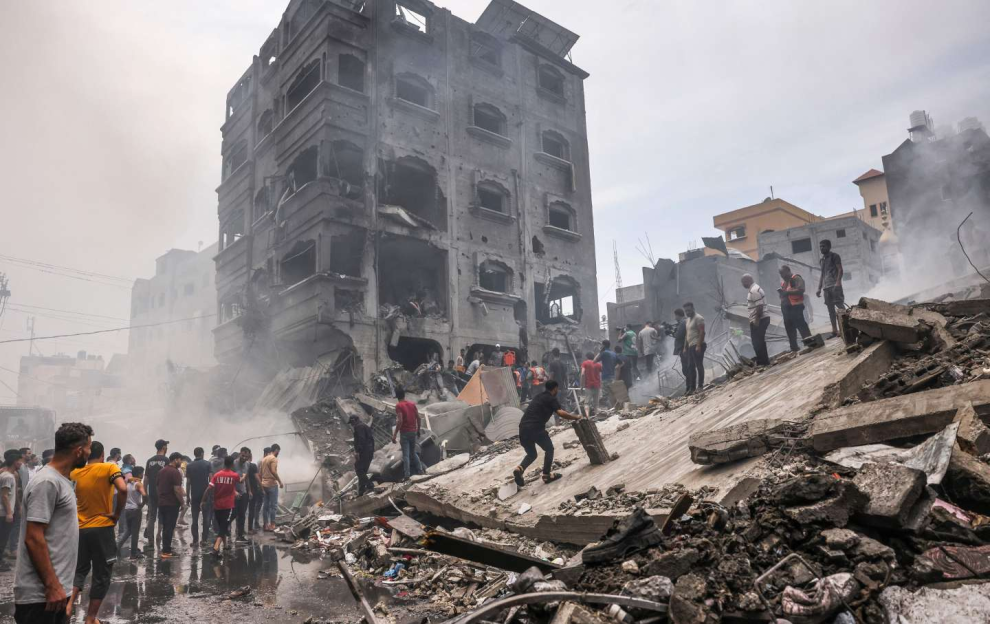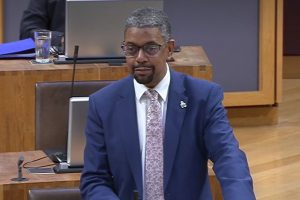In a significant shift from its previous stance on the Israel-Hamas conflict, the Labour Party is now calling for an “immediate humanitarian ceasefire.” The party has submitted an amendment to the SNP’s Gaza ceasefire motion, set for a vote in the House of Commons this Wednesday.
Sir Keir Starmer, Labour’s leader, has previously advocated for a “ceasefire that lasts” in the Middle East but refrained from using the term “immediate.” This adjustment in language signals a notable development in the party’s position on the ongoing conflict, which has been a source of internal tension.
Acknowledging concerns within the party, Labour has introduced a comprehensive amendment, aiming to address various aspects of the conflict. A party spokesperson stated, “Our amendment calls for an immediate humanitarian ceasefire, in line with our allies. We need the release and return of hostages, an end to the fighting, and a substantial humanitarian aid program for Gaza. Any military action in Rafah must be halted.”
The amendment emphasises a call for support to Australia, Canada, and New Zealand’s demand for Hamas to release hostages and an immediate humanitarian ceasefire that is observed by all sides. It underlines the necessity for an end to violence on all fronts, ensuring the security of Israelis and advocating for a diplomatic process leading to a two-state solution.
The SNP’s motion, in contrast, is more succinct, calling for “an immediate ceasefire” without the added qualifications proposed by Labour. The upcoming vote on Wednesday raises concerns about potential divisions within Labour MPs, reminiscent of a previous rebellion during an SNP motion three months ago.
While the consequences for MPs not supporting Labour’s amendment remain unspecified, the party’s focus is on pushing for a humanitarian ceasefire and addressing the complexities of the conflict. Sir Keir, speaking at the Scottish Labour conference, echoed the need for a lasting ceasefire in the Middle East, aligning with previous calls by UK ministers for a “sustainable ceasefire.”
Despite the party leader’s stance, Scottish Labour delegates at the conference supported calls for an immediate ceasefire in Gaza. SNP Westminster leader Stephen Flynn urged all MPs to vote based on conscience for an immediate ceasefire, emphasising the moral imperative to demand a cessation of hostilities.
Hamas’ October 7 attack on Israel, resulting in approximately 1,200 casualties and around 250 hostages, remains a focal point. Militants still hold about 130 hostages, and a quarter of them are believed to be deceased. The conflict since the atrocity has led to the loss of at least 29,100 Palestinian lives, as reported by the Hamas-run Gaza health ministry.
King Charles, in a statement, called for an end to the fighting “as soon as possible” and increased humanitarian support for Gaza. Expressing deep concern about the human cost, he emphasised the desperate need for additional humanitarian aid in the region.
On the international front, the United States has proposed a UN Security Council resolution calling for a temporary ceasefire and opposing a ground offensive by Israel in the southern Gaza city of Rafah. This marks a shift in the U.S.’s previous reluctance to use the term “ceasefire.” Meanwhile, the UK government has not disclosed its position on the U.S.’s draft resolution, maintaining its consistent support for an immediate humanitarian pause in Gaza leading to a sustainable ceasefire.

















